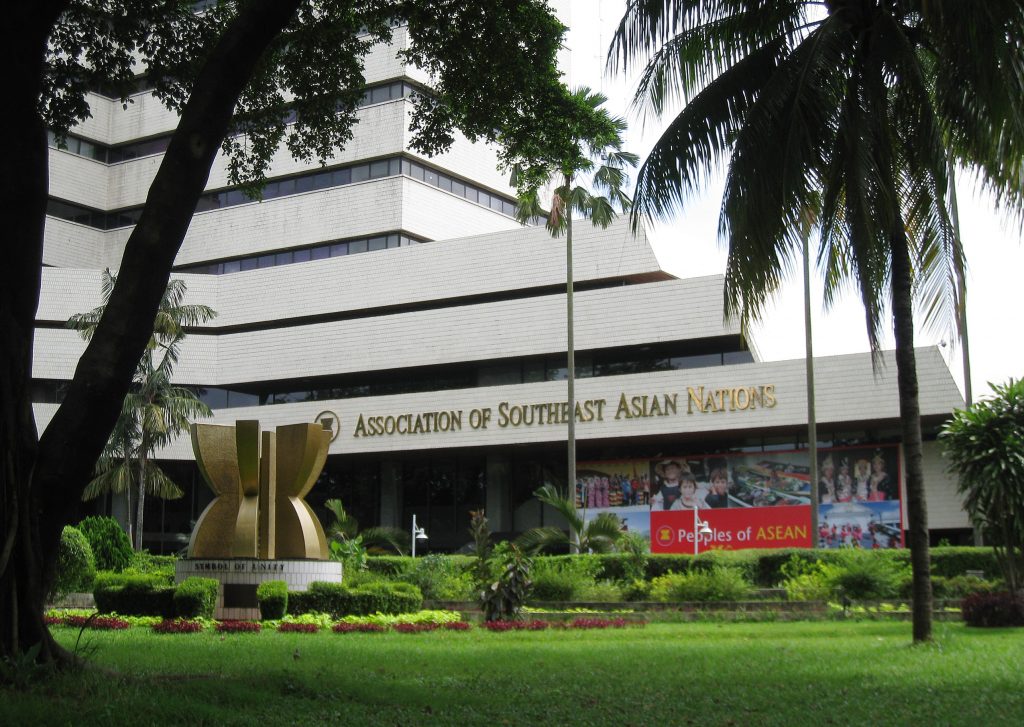News
Asean appreciates Japan’s role in regional cooperation

FILE: The headquarter of Association of Southeast Asia Nations (ASEAN) in Jalan Sisingamangaraja No.70A, South Jakarta, Indonesia. (Photo By Gunawan Kartapranata – Own work/Wikimedia Commons, CC BY-SA 3.0)
HANOI – High-ranking officials from members of the Association of Southeast Asian Nations (Asean) spoke highly of Japan’s role in regional cooperation, contributing to common peace, stability, and prosperity at the 35th Asean-Japan Forum on Wednesday.
The virtual forum was co-chaired by Vietnamese Deputy Minister of Foreign Affairs Nguyễn Quốc Dũng and his Japanese counterpart Takeo Mori.
Speaking on behalf of Vietnam, which acts as the coordinating country for Asean-Japan relations in the 2018-21 term, Dũng, who is also head of Vietnam’s Asean SOM, appreciated progress made in the Asean-Japan partnership despite challenges posed by the coronavirus disease (Covid-19) pandemic.
He proposed the two sides continue to work closely to soon establish Asean’s Centre for Disease Control, reduce negative impacts of the pandemic, and accelerate recovery efforts.
Dũng highlighted the importance of regional peace, security, and stability in the current context and reiterated Asean’s stance on the South China Sea (called East Sea by Vietnam) reached at the 36th Asean Summit in June 2020 and the 53rd Asean Foreign Ministers Meeting in September 2020, aiming to build the sea into a region of peace, security, and stability.
Representatives from Asean countries expressed satisfaction at the implementation of the Asean-Japan Vision Statement in the 2018-22 period and appreciated Japan’s support for Asean in responding to Covid-19 with a number of initiatives and effective practical co-operation.
Asean expressed gratitude for Japan’s support including a donation of USD1 million to the Covid-19 Response Fund and USD50 million to establish the Asean center for emerging diseases and public health emergencies.
Asean member states emphasized the significance of strengthening co-operation to ensure regional peace, stability, and security for common regional interests as a means to address issues on the Korean Peninsula and the South China Sea.
Takeo Mori affirmed that the new government led by Prime Minister Yoshihide Suga would maintain Japan’s policy which upholds peace, stability, dialogue, and co-operation in the region.
Japan will promote co-operation with Southeast Asia and attach importance to Asean’s central role, he said.
Japan supports the Asean Outlook on the Indo-Pacific (AOIP) and wishes to put the viewpoint into practice together with Asean, he said.
The Japanese diplomat spoke highly of Asean’s efforts in responding to the pandemic and committed further assistance for the bloc to reduce adverse impacts on the socio-economy and strive for sustainable recovery.
He expressed concerns over the current developments in the South China Sea, calling for dialogue, upholding trust, and refraining from activities that intensify tensions and complicate the situation.
He highlighted the importance of demilitarization, not using and threatening to use force, and called for peaceful resolution of disputes in accordance with international laws, including the 1982 United Nations Convention on the Law of the Sea (UNCLOS 1982).
Japan expects parties to fully and effectively implement the Declaration on the Conduct of Parties on the South China Sea (DOC) and soon adopt the Code of Conduct in the South China Sea (COC) in accordance with international laws and UNCLOS 1982.
Mori reiterated Japan’s willingness to have a peaceful and nuclear-weapon free Korean Peninsula. The disarmament process on the peninsula should be conducted on comprehensive, verifiable and irreversible principles.
At the meeting, Dũng also informed delegates of the plan for the 23rd Asean-Japan Summit and pledged to work closely with countries for the success of the important event. (VNS)





















